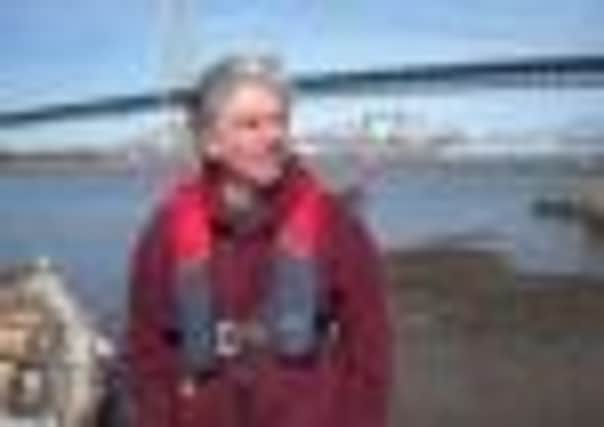Obituary: Alan Meldrum, engineer


ALAN “Mel” Meldrum was a dashing figure often seen in a BBC satellite van behind a flight deck’s worth of controls ensuring an outside broadcast found its way into our homes. Nervous TV reporters and stressed producers depended on his confidence-boosting unflappability, technical authority and courtesy in the thick of a breaking news story, or fraught football encounter.
Added to calm, was the courage and determination he showed when faced with bowel cancer. Days before his death, he was discussing repairs to his 1970s vintage VW camper, and plans for Queensferry Rowing Club’s two skiffs.
Advertisement
Hide AdAdvertisement
Hide AdHe was an engineer-adventurer who once helped weld shut the doors of a VW Beetle, stuff the luggage hold with buoyancy foam and add a propeller for a trip across the Forth. He was unfazed by technical problems, usually producing the right bit of cable to save the day.
Alan had a journalist’s feel for communications, anticipating what would be needed where and when to get the message and picture out. These skills would serve him well when he moved to the Scottish Parliament as operations manager for the broadcast office.
Born in Dunfermline, he spent his boyhood in Zambia, where his father worked as a mine engineer. He later returned to Edinburgh and to Heriot’s. At first, university held little appeal, and for a few years after school he worked for Edinburgh council’s planning department.
He then took a communications degree at the University of Kent, having first met wife-to-be Jenni Barrett at a disco in Edinburgh. They married in September 1982.
Their home was one of South Queensferry’s oldest buildings, the Black Castle on High Street, built in 1626. In its courtyard Alan started to accumulate cars, bits of cars and his treasured BMW 850 motorcycle. Other projects included a beach buggy developed in one of several lock-ups he used around town.
He joined the BBC in Scotland in 1983, first as a radio engineer before moving to outside television broadcasts and operating UKI 234, a satellite van with a huge, heavy relay dish on the roof. It leaned excitingly on country road corners on the way to cover a story. Colleagues remember countless big news events when Alan, the van and excellent communications were essential – such as Pan Am Flight 103 exploding over Lockerbie in 1988, the Braer oil tanker disaster off Shetland in 1993, or many highly-charged football matches and party conferences.
“Just hearing your calm voice and knowing you were part of the team was always reassuring. We took all the glory while you were the real hero – getting us into the best location, sorting out last-minute technical hitches and negotiating with parking attendants” recalled Eleanor Bradford, a BBC Scotland reporter.
Another colleague said: “He was not just a master of the dark arts of the dish, he was a gentleman so completely unflappable that he would calm even the most hyperventilating producer.”
Advertisement
Hide AdAdvertisement
Hide AdHe joined the Scottish Parliament in 2006, responsible for continuous live broadcasts from debating chamber or committee rooms, upon which both the BBC and STV relied.
In 2009, when the Queen was to open a session of the parliament, Alan left for work on his motorbike which then broke down on the busy road into Edinburgh. After phoning Jenni for a lift and with time running out he changed from his leathers into a suit on the grass verge.
After work that day he and Jenni drove their campervan with its idiosyncratic gearbox 190 miles to Port Soy, towing Queensferry Rowing Club’s skiff Ferry Lass to take part in a regatta. He regularly rowed or coxed the boat – one of around 50 built by communities in Scotland in a project to revive coastal rowing.
He was a VW enthusiast: his campervan speedo registered twice around the clock. Alan would attend petrolhead gatherings to discuss sources for replacement panels, or hard-to-find parts, for old Beetles.
Another pursuit was cycling. Several bicycles clogged the hall of his house and he and Jenni joined the Edinburgh to St Andrews cycle run in June despite his illness.
His imperturbability and reliability in a crisis, understanding of electrics, electronics and mechanics as well as his community involvement won him wide respect. Many remember his celebrated collection of poor taste shirts, his technical backup for Queensferry’s ghost walk troupe Ferry Scary, or his growing a raffish moustache for charity. All will remember him for his kindness.
He leaves behind his wife Jenni.